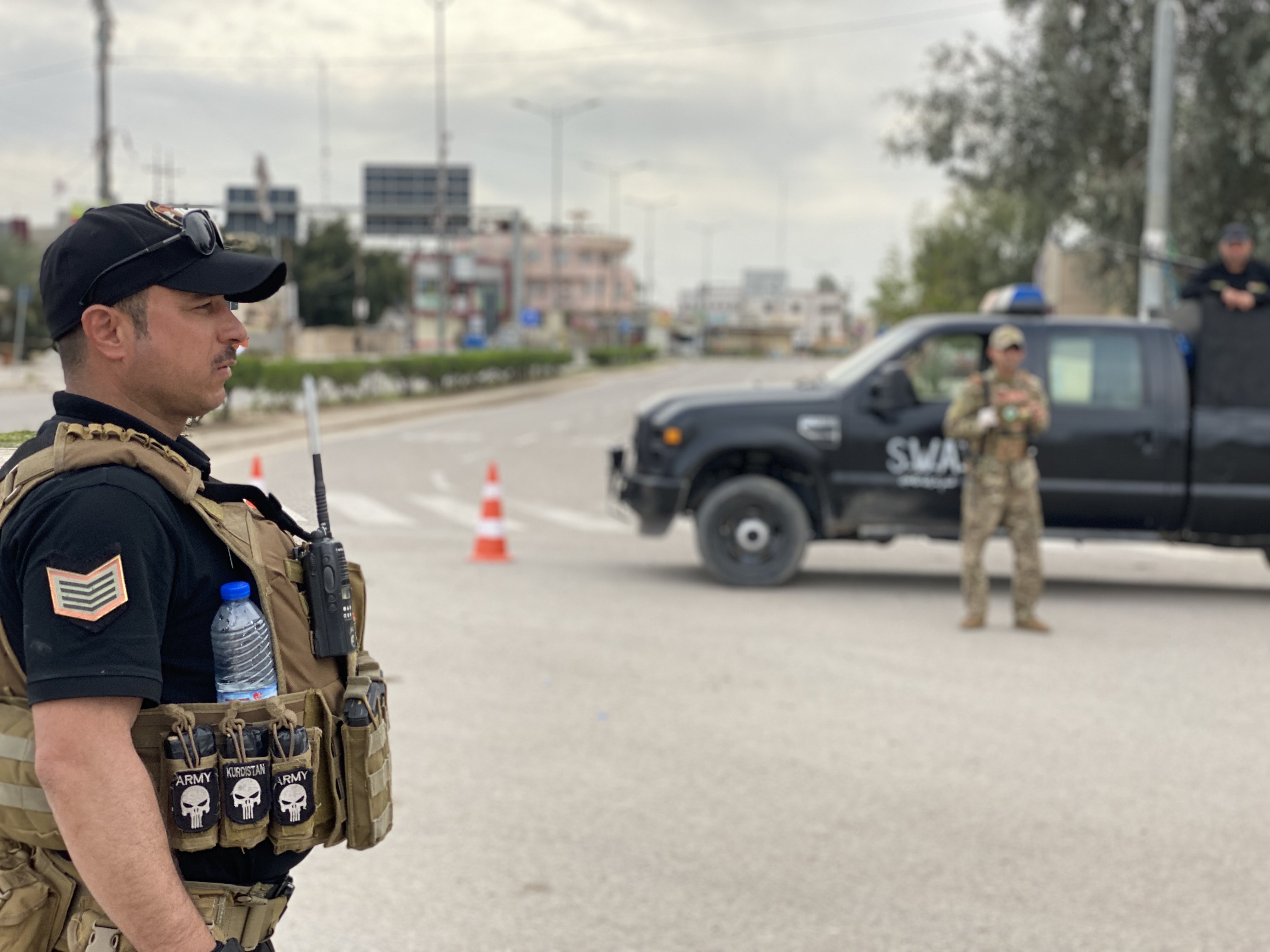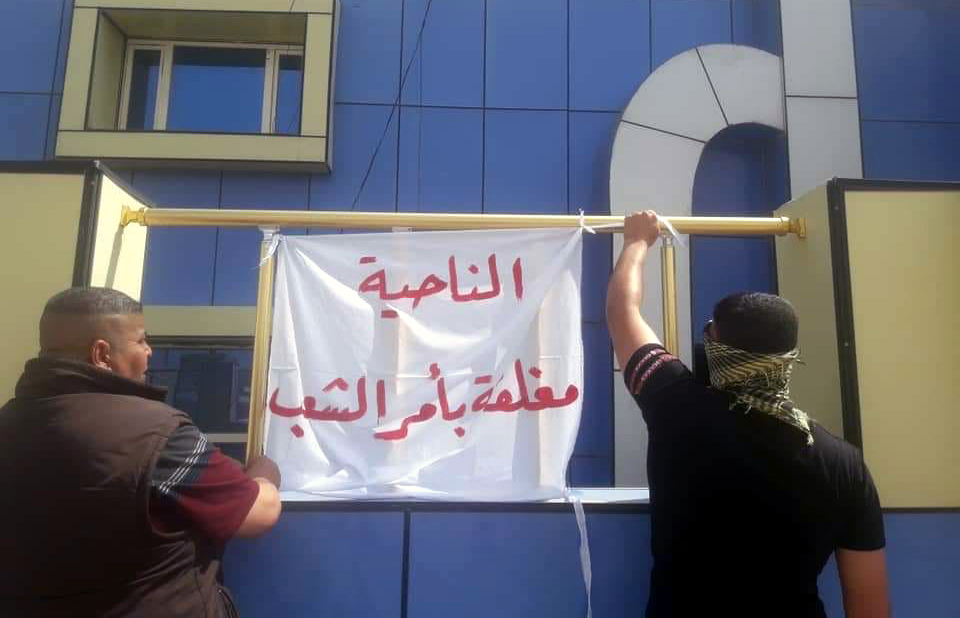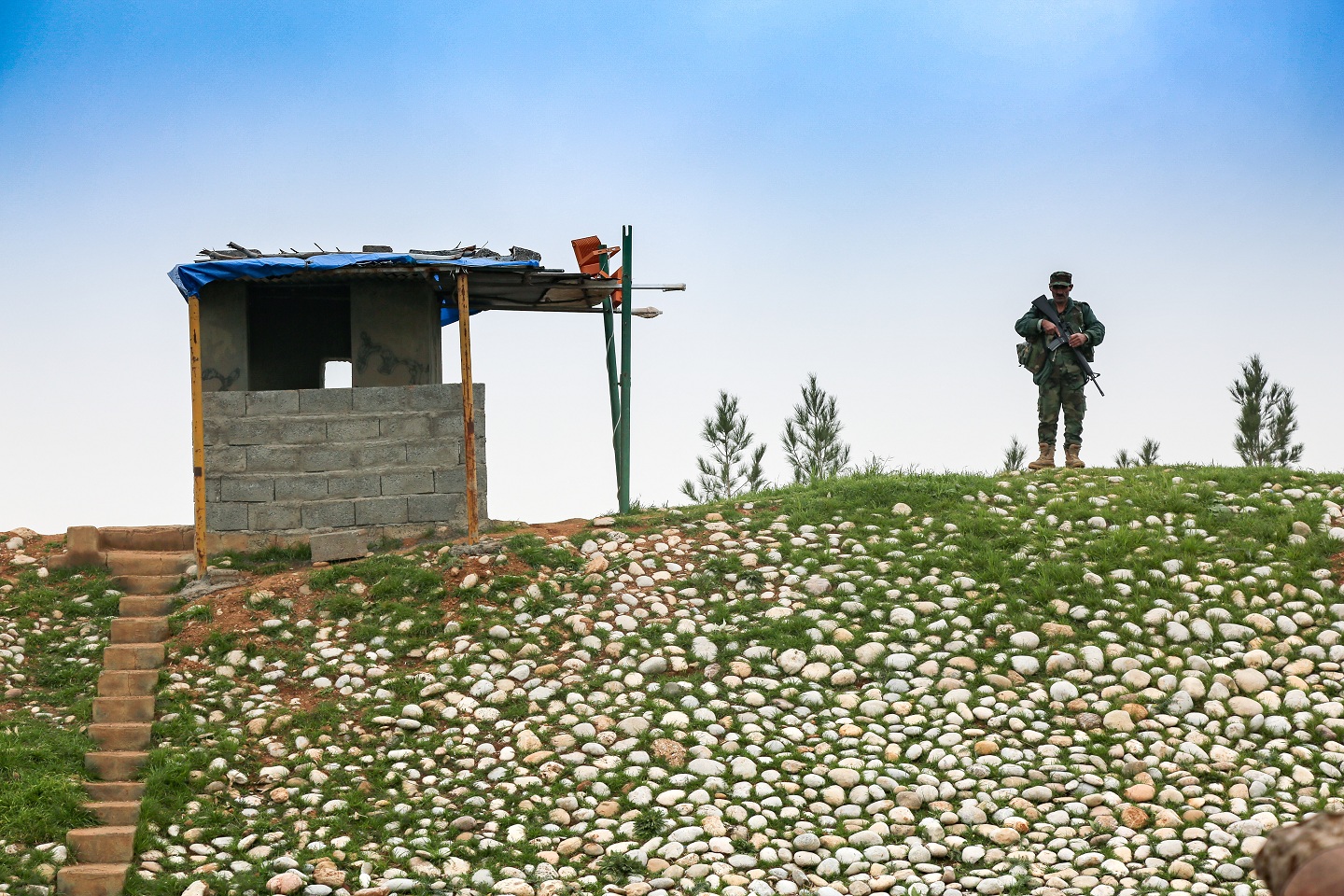The Patriotic Union of Kurdistan (PUK) has held a series of meetings and has intensified efforts to deploy its Peshmerga and other security forces to Khanaqin district, Diyala through the formation of a joint operation room, however, such efforts have been made in the last two years and are yet to result in the deployment of the Kurdish forces to the area.
The PUK’s efforts coincide with the surge of violence against civilians by unknown militias, especially in the villages of the Khanaqin. At least, a thousand Kurdish family have moved to Khanaqin and the Kurdistan Region merely from Jalawla sub-district.
The return of Peshmerga forces to Khanaqin
Last week the PUK fraction in the Iraqi Council of Representatives held a series of meetings in Diyala and Baghdad and met with Iraqi president, interior minister, government and security officials, aiming at the redeployment of the Peshmerga and other Kurdish forces to Khanaqin district.

Khanaqin, a member of the swat forces, under the command of Khanqin police forces, May 2020. Photo: Amir Khanaqini
Sherko Mirways, a member of both Iraqi Council of Representatives and the PUK’s leadership council, told KirikukNow that, “the meetings aimed at how to restore stability in the district, especially in the villages because they are exposed to significant risks and their lives are not protected.”
“The violence is even a threat to the center of the district, previously the threat was posed to the outskirts of the district,” Mirways said, who participated in the meetings, “there is a one km security vacuum between the Iraqi and the Peshmerga forces in some areas.”
There is a one km security vacuum between the Iraqi and the Peshmerga forces in some areas
The PUK requested to form a joint operation room between the regional and federal government in the disputed areas, similar to the joint operation room existed before the emergence of Islamic State groups (IS) in Iraq, as well as setting up joint checkpoints, at which the Peshmerga forces should play an important role.
The request is a time when six Kurdish civilians and a member of the security forces were killed last week as well as several grain fields were set on fire.
Who is behind the violence?
The PUK’s Mirways doubts that majority of the violence is committed under the name of IS but “target Kurds” by other groups.
“We doubt that several groups and individuals, who were previously wanted and were even affiliated with IS in Jalawla, are behind the attacks,” Mirways said, “there are people who guard headquarter of security forces during the day and attack people during the evening.”
“There are people who guard headquarter of security forces during the day and attack people during the evening
PUK is investigating into the surge of violence and the attacks and reiterates that the attacks are aimed the evacuation of the Kurdish villages in Khanaqin.
KirkukNow has obtained a date that shows that six villages in Khanaqin have been evacuated and tens of families have abandoned their villages since the events of October 16, 2017, when the Kurdish forces withdrew from the disputed areas including the district of Khanaqin.
The IS is yet to announce its responsibility for the attacks of last week, which has fueled PUK doubts that other people are carrying out the attacks.
The protests against PUK’s efforts
On May 19 and 20, part of the Kruy clan in Jalawla protested against the efforts to form an operation room with the participation of the Peshmerga forces in it.
The protestors blocked Jalawla-Khanaqin road and in a statement reaffirmed their objection to the participation of the Peshmerga force in the security apparatus of the area.

Diyala, protestors are closing down the office of Jalawla sub-district, March 2020. Photo: KirkukNow
Several militants of Kruy clan confronted the Peshmerga forces, when they launched the offense to retake Jalawla from the IS militants. Subsequently, the arrest warrants of a number of them have been issued by the court house in Baaqubah district, Diyala.
The militants of the clan, part of which belong to the Asa'ib Ahl al-Haq, have asked for the dismissal of the commissioner of the Jalawla and have shut down the office of the commisioner since March 16.
Yaqub Lhibi, Jalawla commissioner, has entered office before the events of October 16, 2017, with the support of the PUK. “Numerous figures and armed groups have started their activities against the efforts to stabilize the areas and the formation of a joint operation room,” Lhibi said.
I have not been able to go to office since March 16 and have served people outside of Jalawla
Lhibi, who is ethnically Arab, said that, “I have not been able to go to office since March 16 and have served people outside of Jalawla because they have shut down the office.”
He claimed that 1100 families have left Jalawla in the last three years.
More forces to be deployed to Khanaqin
The command room of Diyala province and the Popular Mobilization Force (PMF) have decided to deploy additional forces to Khanaqin, after PUK’s efforts to return the Kurdish forces to the district.
Dyar Shawkar, head of Khanqin police department, said that, “on May 17, a particular meeting in the Diyala governorate was held on the security situation of the province, in which the commander of the operation room decided to deploy 150 additional security personnel to Khanaqin, also, the commander of the northern base of PMF said that they would add a new five security checkpoints at the outskirts of Khanaqin.”
In the meeting, however, no one from the KRG or PUK participated.
Mirways added that, “the situation would not be stabilized with additional troop deployment, but it rather requires cooperation between the KRG and federal government.”
We want to reactivate the pre 2014 agreement
“The best solution in our opinion is a joint operation room and joint checkpoints, otherwise, people will not live in stability… we want to reactivate the pre 2014 agreement.”
The agreement that the federal and the regional government had allowed the joint security and administration of the disputed areas, which is also allowed by the Iraqi constitution.
The efforts of the PUK unilateral, even though the same unsuccessful efforts have been made for two years by the KRG’s Ministry of Peshmerga.
A joint operation room in Kirkuk and the other disputed areas has been the request of the Kurds, but the request is yet to be addressed.





